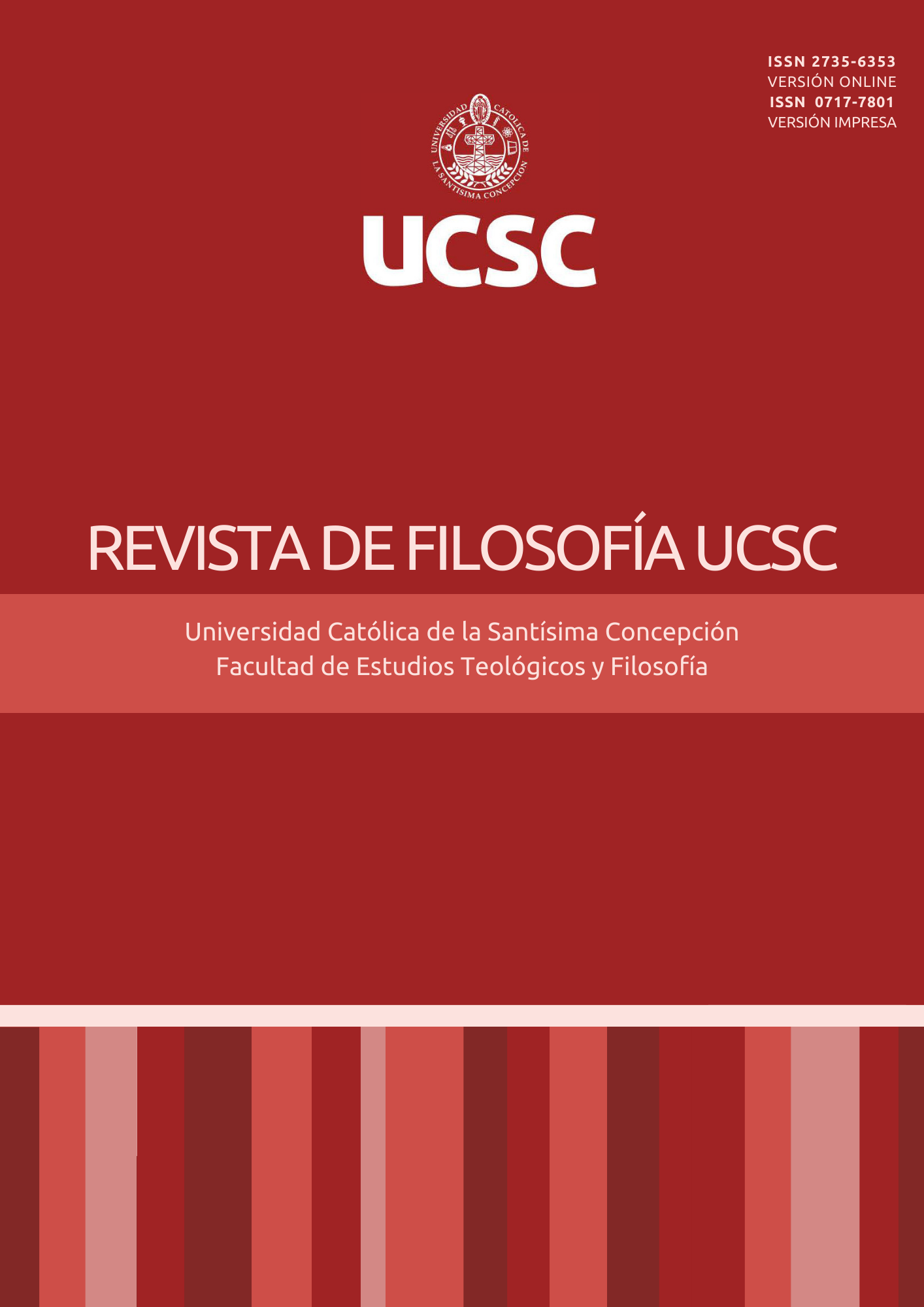El lenguaje fenomenologico sobre el misterio cristiano
Contenido principal del artículo
Resumen
Este artículo explora la relación entre el lenguaje humano, la filosofía y la teología, haciendo hincapié en la dificultad de expresar lo divino. Parte del postulado de que el lenguaje, tanto exterior como interior, es propio del ser humano y examina su capacidad para articular la trascendencia. Desde una perspectiva fenomenológica, el estudio analiza cómo la filosofía atribuye conceptos a los fenómenos, mientras que la teología encuentra obstáculos al intentar nombrar a Dios, ya que lo divino parece superar los límites del lenguaje. El artículo sugiere que, aunque el lenguaje es esencial para la comunicación y el pensamiento, su capacidad para expresar la realidad divina sigue siendo limitada. El silencio aparece, entonces, como un camino hermenéutico más apropiado para acercarse a lo sagrado, ya que la naturaleza de Dios trasciende los conceptos humanos, revelando así las limitaciones del lenguaje ante lo inefable.
Detalles del artículo
Sección

Esta obra está bajo una licencia internacional Creative Commons Atribución-NoComercial 4.0.
La Revista de Filosofía UCSC es de acceso abierto y no cobra por publicar en ella. Además, regula su política de Derechos de Autor y de acceso a sus archivos de acuerdo con la Licencia Pública Attribution-NonCommercial 4.0 International (CC BY-NC 4.0), por tanto, se permite compartir (reproducir y distribuir el material en cualquier medio o formato) y adaptar (modificar, transformar y crear a partir del material) siempre y cuando se de crédito adecuadamente, se incluya la cita con los datos correspondientes. Además, no está permitido utilizar el material con fines lucrativos.
Cómo citar
Referencias
Aristote (1992). Métaphysique. Flammarion
Bergson, H. (1889). Sur les données immédiates de la conscience. PUF.
Berkeley, G. (1971). Traité des principes de la connaissance humaine. Les Belles Lettres.
Boileau, N. (1999). Art poétique, chant I. Flammarion.
Chauchard, P. (1956). Le langage et la pensée. PUF.
Derrida, J. (1993). Sauf le nom. Galilée.
Descartes, R. (1937). Œuvres, lettres. Gallimard.
Hegel, W. (2010). La Phénoménologie de l’Esprit. Pernon.
Heidegger, M. (1976). Acheminement vers la parole. Gallimard.
Husserl, E. (1947). Méditations cartésiennes, deuxième méditation. Vrin.
Kant, E. (2010). Fondements de la métaphysique des mœurs. Pernon.
Kant, E. (2012). Critique de la raison pure. Gallimard.
Leibniz, F. G. W. (1714). Principes de la nature et de la grâce fondés en raison. Vrin.
Lucrèce.( 1924). De rerum natura. Les Belles Lettres.
Marion, J.-L. (1982). Dieu sans l’être. Grasset.
Marion, J.-L. (1997). Etant donné. Essai d’une phénoménologie de la donation. PUF.
Marion, J.-L. (2010). Certitude négative. Grasset.
Merleau-Ponty, M. (1945). Phénoménologie de la perception. Gallimard.
Nazianze, G. (1978). Discours théologique. Poème dogmatique. Discours. Cerf.
Nietzsche, F. (1971). La généalogie de la morale. Gallimard.
Nietzsche, F. (2006). La naissance de la tragédie. Gallimard.
Parrochia, D. (1991). Le réel. Bordas.
Piajet, J. (1937). La construction du réel chez l’enfant, Delachaux & Niestlé.
Platon. (1970). Le sophiste. Belles Lettres.
Popper, K. (1963). Conjonctures et réfutations : comment nous faisons des sciences. Routledge & Kegan Paul.
Russ, J. (2011) Dictionnaire de philosophie. Hatier.
Sartre, J.-P. (1943). L’être et le néant, essai d’ontologie phénoménologique. Gallimard.
Sartre, J.-P. (1983). Cahiers pour une morale. Gallimard.
Techou, R. (2017). Le phénomène humain. Essai sur l’homme. Spinelle.
Wittgenstein, L. (1992). Philosophie, logique, thérapeutique. PUF.




